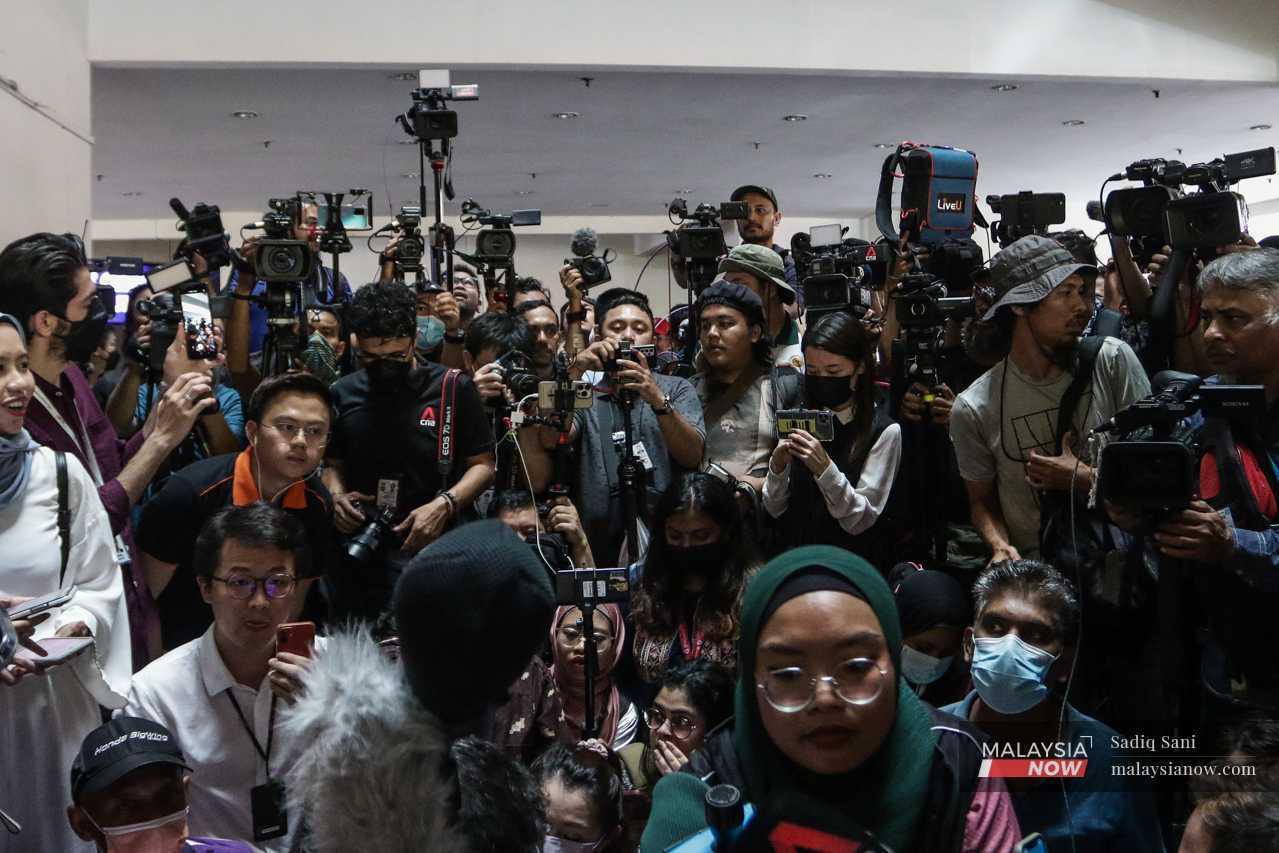Anwar's administration, slow to protect press freedom?
Amid growing concerns over the state of press freedom and freedom of expression in Malaysia, the current administration is taking its time for reform.
Just In
Prime Minister Anwar Ibrahim is known as the face of freedom fighters for his "reformasi" (reform) movement during the leadership of Dr Mahathir Mohamad in the late 1990s. He was jailed twice in 1999 and 2015 for sodomy and corruption charges which were aimed at ending his political career.
After more than two decades of repression, he was sworn in as Malaysia's 10th prime minister in 2022 but civil society groups and opposition parties are keeping a close eye on how he and the Pakatan Harapan (PH) coalition he leads are honouring press freedom while maintaining national security.
So far, the signs are not promising.
In March, Anwar said he and his government would not tolerate any attempts to incite religious and racial sentiments that would disrupt national security. This came after a programme organised by the youth ministry to allow people to visit places of worship and learn about other religions stirred controversy.
In Malaysia, freedom of speech under Article 10 of the Federal Constitution is not absolute and may be restricted by law in the interest of preserving national security, public order or morality and international relations.
However, the notion of national security is a broad and diverse concept that can be subject to rhetorical interpretation and potentially misused by those in power to suppress dissent.
To protect national security, Malaysian authorities have been utilising laws with broadly worded terms, including the colonial-era Sedition Act 1948, the Communications and Multimedia Act 1998 and the Printing Presses and Publications Act 1984.
Recent efforts by the communications and digital ministry to strengthen some laws have raised concerns about curtailing freedom of speech. The proposed amendments to Section 233 of the Communications and Multimedia Act 1998, also known as "Akta Sakit Hati" or the "Hurt Feelings Act", could increase penalties for offences. There were nearly 100 arrests and investigations made under the act last year including against activist Fahmi Reza during the Perikatan Nasional administration.
Communication and Digital Minister Fahmi Fadzil has justified that the proposed amendments to the act could help curb sensitive issues relating to race, religion and the royal institution, also known as the 3Rs. Even the police have established a special team to investigate cases involving the 3Rs. Since March, seven investigations have commenced involving insults to the royal institution (four cases), religion (two) and racial elements (one).
On press freedom, the government also recently backtracked on its pledge to review and repeal draconian laws that restrict journalists, including the Printing Presses and Publications Act 1984 which grants the authorities the power to suspend any publication or prevent its importation if the minister is satisfied that it is potentially "likely to be prejudicial to public order, morality, security, or which is likely to alarm public opinion, or which is likely to be contrary to any law or is otherwise prejudicial or is likely to be prejudicial to the public interest or national interest".
Journalists and news organisations have criticised the decision, saying it contradicts the ongoing commitment to set up a Malaysian media council towards media self-regulation and the liberalisation of media and publications licensing.
Civil society organisations such as Lawyers for Liberty and Suara Rakyat Malaysia are concerned about the state of freedom of expression and press freedom, as the government continues to use sedition laws to investigate citizens for participating in public rallies and online criticism.
The sedition law makes it an offence for any act, speech, text, publication or other things that are defined as having "seditious tendencies" which are imprecise and without clear boundaries.
The Communications and Multimedia Act 1998 and the Printing Presses and Publications Act 1984 also contain broad terms such as "obscene", "indecent", "false", "menacing", and "offensive", which give authorities wide discretion to prosecute anyone they deem to have violated these provisions, resulting in blanket bans on anonymous speech.
In Malaysia, conversations around safeguarding national security have focused on maintaining peace and harmony within its diverse, multiracial society. Citizens are told to be aware of sensitive issues that could pose a threat to the social fabric of the nation. This has continued even after PH assumed power for the second time in 2022.
Amid calls for speedy reform, a PH representative said the government is committed to reforms but will take a "staggered" approach. But how fast these reforms happen is open to debate. Some argue that rapid change is necessary to address urgent social and political issues. They say real change can only be achieved through immediate and sweeping action and that PH leaders missed their chance for much-needed media reforms when they first took over the government in 2018.
In contrast, others argue that slow and steady reform is more effective in achieving sustainable change. They believe that rapid change can be destabilising, leading to unintended consequences such as public disorder or racial tension. In Malaysia, especially, it is crucial to carefully consider the pace and extent of reforms to avoid such consequences.
As a coalition that promises greater civil liberties, the PH administration faces the difficult task of balancing national security and press freedom, and achieving this balance will require careful consideration and tactful strategy.
Kow Kwan Yee is a lecturer at the School of Communication & Creative Arts, UOW Malaysia KDU University College.
The views expressed in this article are those of the author(s) and do not necessarily reflect the position of MalaysiaNow.
Subscribe to our newsletter
To be updated with all the latest news and analyses daily.
Most Read
No articles found.
